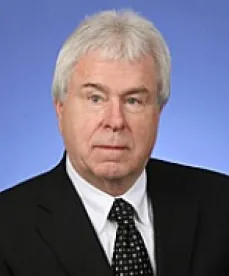The new year is well under way, and any number of Indian gaming issues will be debated over the next 10 months. The resolution or nonresolution of some of them could have significant and long-lasting impacts for Indian Country in general and tribal gaming in particular. High on anyone's list of issues to watch are five that are in active discussion and even controversy.
1. Internet Gaming
The late Oklahoma humorist Will Rogers once famously said of the weather: "Everyone is always talking about it, but nobody is doing anything about it." That same statement easily could be applied to I-gaming in Indian Country.
Much of the current debate concerns potential state legislation authorizing I-gaming, with concerns raised about states in which tribes have an exclusive franchise for gaming. Another area of concern is that various states have extended to tribes various forms of "exclusivity" for their gaming, including (a) geographical and (b) specific types of gaming, such as slots. The tribes have made financial concessions to those states in return for some form of exclusivity, and protecting their position could be difficult if the scope of I-gaming would breach any exclusive rights ceded to tribes.
It appeared that California would be the first state to address legislation allowing I-gaming by tribes, and this is important since the only casino gaming (exclusive of California's card clubs) allowed in the state is tribal. Over the past several years, various tribal coalitions have pursued legislation, and they were working with a leading member of the State Senate who happened to chair the critical Senate Committee. Many believed that this combination could produce legislation during 2014. However, that optimism has withered since the Senator was convicted of a felony relating to his election to office. While he is still a member of the Senate, he has been removed from his Committee chairmanship, an action that almost certainly has severely wounded the current legislative effort. It should be noted that two separate Internet poker bills for tribal gaming were introduced only last Friday, but the change in the critical Committee chairmanship leads to legitimate questions as to whether either bill can gain much traction this year.
Looking beyond California: there are at least two tribal coalitions promoting I-gaming that apparently contemplate gaming across state lines. These would ostensibly violate the federal law prohibiting the use of credit cards for interstate I-gaming, although the plans of one are not clear and those of the second include a payday loan vehicle that would be closely scrutinized by federal officials should gaming operations be commenced.
As for federal legislation, there seems to be little chance for action in 2014, but proponents continue to hold out some hope. For example, Senator Lindsey Graham (R–SC) has just proposed legislation for interstate I-gaming. Initially, little enthusiasm for his proposal has been expressed either by Democrats or his fellow Republicans.
Nonetheless, despite the problems and setbacks, I-gaming in Indian Country is a very hot topic in tribal councils, legislative bodies, and major Indian Gaming conferences, the most significant of which will be the spring meeting in San Diego of the National Indian Gaming Association scheduled for May 11–14.
There are strong voices in Indian Country demanding that tribes have a place at the table when any legislation is proposed, regardless of the forum. The current phenomenal financial success of Indian gaming ensures that they will have a seat at the table, but the greater issue is whether it will be a united voice.
2. Off-Reservation Gaming
When the Indian Gaming Regulatory Act became law on October 17, 1988, Congress specifically provided that tribes can conduct gaming on "Indian lands" as defined as of the date of enactment. However, Congress realized that many recognized and non-recognized tribes seeking status clarification would be excluded from ever conducting gaming with a fixed date for lands qualification. That fact led to enactment of IGRA's Section 20 – Gaming on lands acquired after October 17, 1988, which established various exceptions to the fixed date barrier. These exceptions provide a number of pathways through which tribes can secure "Indian lands" status for after-acquired lands. Among them was the provision at Section 20(b)(1)(A) providing that tribes unable to qualify for any of the other statutory exceptions could seek approval for gaming on "off reservation" lands.
Off-reservation approval is not easy and has rarely been granted in IGRA's 25 years. While past Presidents have been reluctant to honor this statutory path for gaming status, the Obama Administration has been more amenable to such considerations. Most readers know that the Governors were given a veto over such applications after the Secretary of the Interior has first determined that the trust application should be granted. This veto – which was carefully considered during the drafting of IGRA – was a major concession to the Governors who are lawfully empowered to act on behalf of their states.
However, there are many non-tribal casino interests that outright oppose any off-reservation trust acceptances. Their argument often is that off-reservation acquisitions should never qualify for "Indian lands" because they were never occupied by the applicant tribes in the first place, a claim that is not true in all cases.
Litigation has been filed to block such trust acquisitions, but it has largely been more successful in delaying trust status than in actually blocking projects altogether. Still the opposition continues, and gaming tribes often are among the opponents.
Referendum challenges can also play a significant role in the offreservation process. The North Fork Rancheria of Mono Indians of California has carefully negotiated the path to compact approval for an off-reservation casino approval after some 10 years of work, but now faces a threat that would wipe out its ability to proceed with development of the casino project. The threat arises out of the fact that California is one of a handful of states that require the state legislature to ratify tribal gaming compacts once approved by the Secretary of the Interior and the Governor. The State Constitution provides for state ballot consideration by the electorate of any state law upon submission to the Secretary of State with petitions containing sufficient valid signatures to invoke the referendum. Petitions challenging the legislature's approval of the North Fork Compact with the required number of signatures have been certified by the Secretary of State, and the Compact approval will be on the November ballot for affirmation or rejection. The Referendum's legality reportedly is being examined by attorneys interested in the North Fork casino development. This one is worth watching for sure.
3. State Renegotiations of Compacts Due to Expire
Class III tribal-state compacts are expiring in New Mexico, and the State has attempted to negotiate new compacts with provisions for revenue sharing not previously included. While the Governor has been largely successful, several of the Pueblo tribes have refused to accept the new demands for revenue sharing, and one – the Pueblo of Pojoaque – has filed suit in federal court claiming that the State has not negotiated in good faith as required by the Indian Gaming Regulatory Act. The State's demand for revenue sharing is cited as bad faith negotiation.
There are other states in a renegotiation mode, starting with Florida which currently is in compact talks with the Seminole Tribe, owner of the Hard Rock franchise and seven tribal casinos, including major facilities in Tampa, Hollywood, and Coconut Beach. The negotiations are private, but the State won major financial concessions from the Tribe only a few years ago, and it is reported that further concessions are being sought by the Governor. Given the scope of Seminole's Florida operations as well as its ownership of the Hard Rock brand, this negotiation is being closely watched throughout Indian Country.
Another state to watch is California. A number of tribes currently conduct gaming under compacts executed with former Governor Gray Davis in 1999 and 2000. In the opinion of many observers, it is past time to revisit those aging compacts. A number of the affected tribes operate successful casinos and have both experience and resources to pursue sophisticated negotiations. Look for it to happen sooner rather than later.
4. Indian Gaming as Part of a Major Regulatory Reorganization of Gaming in Florida
As discussed above, the Seminole Compact negotiation is a big deal, both for Florida and Indian gaming in general. The Tribe's negotiating team will be as experienced and savvy as any in the country. Whether the State can match it will be the story of this negotiation.
5. Tribal Disenrollments for Blatantly Financial Reasons
Over the past several years, there have been a series of publicized tribal enrollment revocations of enrolled members – including former tribal leaders – and their entire families. This phenomenon is disturbingly common and apparently limited to gaming tribes that make periodic per capita payments of casino revenues to enrolled adult members. Many tribes have found that, as tribal populations grew, the periodic – often monthly – revenue distributions had to be reduced since revenue growth was not matching the population growth. One solution is to reduce the tribal membership by expelling members, resulting in a smaller tribal population which, in turn, allows the tribes to return individual payments to their previous higher levels.
There is virtually nothing the expelled members can do. Legal challenges cannot be mounted due to tribal sovereign immunity and are routinely dismissed. Moreover, while the federal Indian Civil Rights Act of 1968 ostensibly offers legal protections to the victims of enrollment revocations, the reality is that the law is toothless and is not the vehicle through which individual Indians have gained much of anything in the way of rights protection. And the Bureau of Indian Affairs rarely takes any action, reiterating a long-standing position that the issue of tribal membership is purely an internal tribal matter and not something in which the federal government will – or even should – become involved.
Among the most notorious "enrollment reductions" are those implemented by the Pala Band of Mission Indians of California, the Picayune Rancheria of Chukchansi Indians of California, and the Nooksack Tribe of Washington. Each (i) has operated a tribal casino for years, (ii) has been making per capita payments to its enrolled members, (iii) has now disenrolled scores of members, and (iv) began disenrolling members after experiencing downturns in casino cash flow and was forced to reduce per capita payments.
These types of actions against tribal members may be joined by what appears to be a new tactic by a tribe with a very successful casino and a history of making per capita payments to its members. At some undefined date, leaders of the Confederated Tribes of the Chehalis Reservation of Washington adopted a "moratorium" on enrollment of people who otherwise were guaranteed tribal membership by the Chehalis Constitution and Enrollment Ordinance. There was no clear explanation for the decision or the process followed, which saw children of "favored" members being duly enrolled while other equally qualified enrollees were not. At least one member sought to compel enrollment for her young children by filing an action in the Chehalis Tribal Court and – to the surprise of many – won an order directing the enrollments. Nonetheless, the Enrollment Committee delayed the enrollments for about a year. (The two recently were enrolled after the 12-month delay.) Others entitled to Chehalis enrollment have encountered delays without explanation. Coincidentally, the recurring speculation about the enrollment "moratorium" or at least the enrollment "slowdown" is that it is the direct product of reduced per capita payments.
Other tribes may follow suit. While the BIA has refused to become involved, continued activities such as these may force some government intervention.




 />i
/>i


